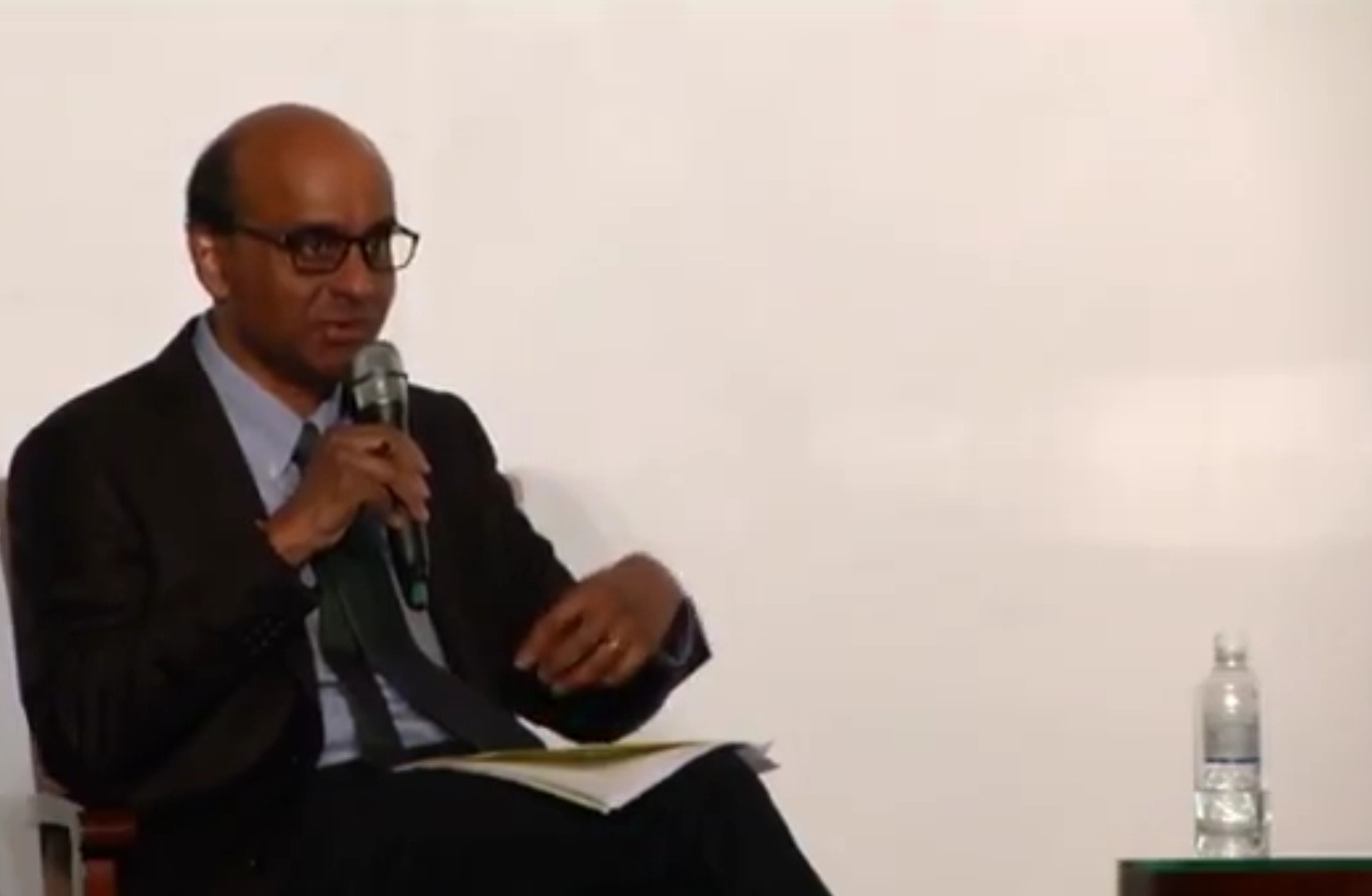Deputy Prime Minister (DPM) and Finance Minister Tharman Shanmugaratnam spoke at the 6th S Rajaratnam Lecture, organised by the Ministry of Foreign Affairs’ (MFA) Diplomatic Academy yesterday. 600 foreign service officers and members of the diplomatic corps were among the audience.
Started in 2008, the S Rajaratnam Lecture was named after Singapore's first and longest serving Foreign Minister. Past speakers include former PM Lee Kuan Yew (2009), former President SR Nathan (2008) and DPM Teo Chee Hean (2012).
Here are 5 key points of his speech:
1. Social Compact under challenge: DPM Tharman said that almost every country today faces the challenge of preserving a fair social compact due to prolonged sub-normal growth in the advanced world and achieving inclusive growth in the emerging economies.
Note: Social Compact refers to an agreement among the members of an organized society or between the governed and the government defining and limiting the rights and duties of each.
2. Singapore’s similar challenges: DPM Tharman said that Singapore face the same challenges that all societies face – 1) creating good jobs and better incomes; 2) preserving a sense of social equity; and 3) ensuring a fair deal between generations. He said that the government is providing a significant lift to the lower income group. To illustrate, he said over a lifetime, a low-income couple at the bottom 10 per cent of the income ladder can expect to receive benefits that would help them more than double their lifetime earnings, after deducting the taxes they pay, which is mainly the GST.
3. Why Social Culture Matters: DPM Tharman said that "social culture" – the values and norms, and especially the willingness of individuals to take responsibility for themselves and their families, and to support others – matters in building the good society.
4. Policy and social culture: DPM Tharman said that social culture is not immutable, and it changes in response to policies themselves. He cited communism, free-market capitalism and the social-democratic model as examples. He highlighted that the "invisible hand of social culture is at least as powerful as the invisible hand of the market", adding that redistributive policies can only succeed if they are designed to encourage a culture of personal responsibility and if they promote collective responsibility among everyone.
5. Four areas where policy has to be concerned about social culture: 1) Sustaining Social Mobility; 2) Compact between individual and collective responsibility; 3) Nurturing an innovative and risk-taking culture; and 4) Growing the public good, and in particular the role of public spaces and a civil society.
Full Speech on Ministry of Finance website
Speech by DPM Tharman Shanmugaratnam at the 6th S Rajaratnam Lecture
If you like what you read, follow us on Facebook, Instagram, Twitter and Telegram to get the latest updates.
